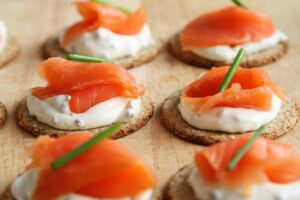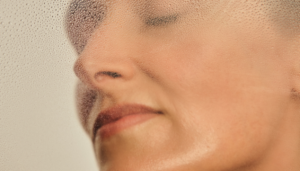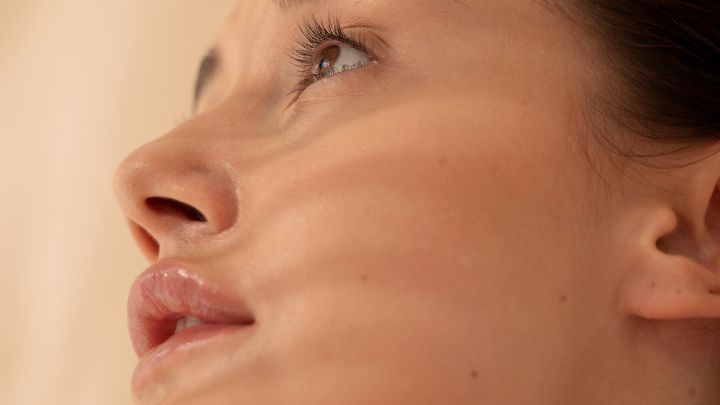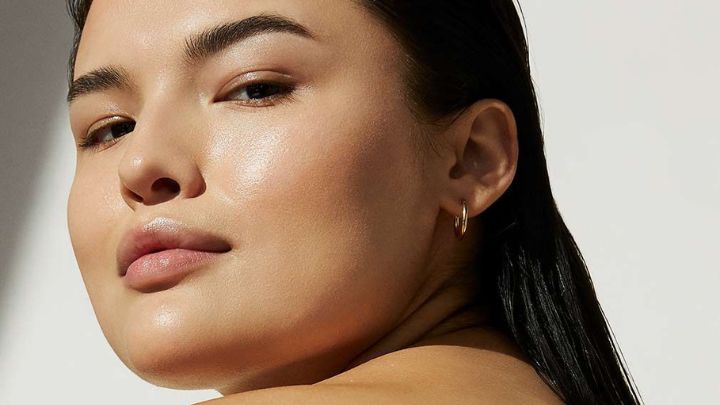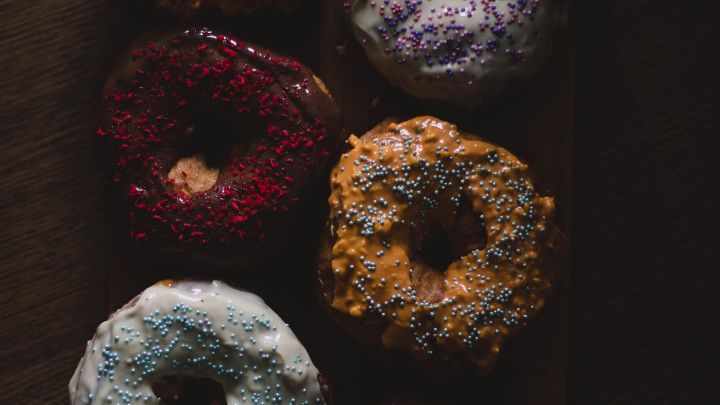Put a fresh loaf of bread in the oven, and it will come out with a golden-brown crust, thanks to a chemical reaction called the Maillard reaction.
This occurs when sugars interact with proteins, creating that rich flavour and appealing colour we associate with perfectly baked goods.
But what if something similar was happening inside your body? Not enhancing taste, but silently ageing your skin.
It’s called glycation, and it’s weakening the very proteins that keep your skin firm and youthful—without you even realising it. And with modern lifestyles packed with sugar, stress, and pollution, it’s happening faster than ever.
The result? Wrinkles. Sagging. Dullness.
Fortunately, there are science-backed ways to prevent—and even reverse—the effects of glycation on your skin.
Here’s how to keep your skin as young as you feel in this Avea guide.
FREE anti-ageing guide

- Master the science of rejuvenation.
- Apply proven tips to turn back the clock.
- Transform your health with top longevity specialists.
In this article
What is glycation, and why does it matter for your skin?
Glycation is a natural process where excess sugar in your body binds to proteins, fats, or DNA, forming harmful compounds called advanced glycation end products (AGEs) [1].
Unlike processes your body can control (e.g. enzymatic reactions), glycation happens spontaneously—and once AGEs form, they don’t just go away.
An accumulation of AGEs damage important proteins like collagen and elastin, which are needed to keep your skin firm and smooth. Over time, they become stiff and weak, leading to wrinkles, sagging, and loss of elasticity.
Glycation also triggers oxidative stress and inflammation, which speed up skin ageing and make it harder for your body to repair itself.
And while it happens naturally, factors like high sugar intake, UV exposure, and pollution can make it worse.
At Avea, we’re not here to fight ageing—we’re here to help you age well. Understanding glycation isn’t about fearing the years but giving your skin the support it needs to stay healthy, resilient, and radiant at any stage of life.
How does glycation damage your skin?
Glycation is a process that weakens your skin from within, altering its structure and making it more vulnerable to damage over time.
Here’s how glycation affects your skin:
- Collagen and elastin become brittle → These proteins provide firmness and elasticity. When they stiffen due to glycation, skin loses its ability to stay smooth and lifted.
- Oxidative stress and inflammation increase → Glycation fuels free radical damage, making skin appear dull, uneven, and slower to heal.
- Proteins cross-link and lose flexibility → The skin becomes less resilient, leading to deeper lines and a lack of bounce.
- The skin barrier weakens → With its defences compromised, skin is more prone to dryness, irritation, and external stressors.
- A cycle of inflammation begins →AGEs bind to receptors (RAGEs), creating a chain reaction that fuels inflammation and weakens your skin’s repair system.
Left unchecked, glycation gradually reshapes how your skin ages. But understanding its causes is just as important as knowing how to slow it down.
The lifestyle factors that accelerate glycation
There’s no doubt that our lifestyle choices play a major role in fuelling glycation—especially in today’s world, where sugar, stress, and environmental toxins are everywhere. But could your daily habits be ageing your skin faster than you think?
Here’s what might be accelerating glycation in your body:
- High-sugar diet & processed foods → Excess sugar binds to collagen and elastin, forming AGEs that weaken skin structure and accelerate ageing.
- Cooking methods matter → Frying, grilling, and roasting create AGEs in food, which accumulate in the body and break down collagen faster.
- Alcohol & smoking → Both increase oxidative stress, depleting antioxidants and making skin more vulnerable to glycation-related damage.
- UV exposure → Sun damage triggers free radicals, speeding up glycation and breaking down collagen, leading to wrinkles and sagging.
- Chronic stress & poor sleep → Elevated cortisol and blood sugar levels fuel inflammation, slowing collagen repair and making skin look dull and aged.
Minimising these triggers while adopting AGE-fighting habits can help protect your skin and slow down visible ageing.
How to prevent and reverse glycation for healthier skin
While glycation is a natural process, you can slow it down and even reverse some of its effects by making strategic lifestyle choices. Here’s how:
A. Eat a low-AGE diet
- Choose whole, unprocessed foods → Prioritise vegetables, fruits, nuts, whole grains, and legumes.
- Focus on low-sugar foods → Excess glucose speeds up glycation, so cutting back on refined sugars and processed carbs is key.
- Optimise cooking methods → Swap frying, grilling, and roasting for steaming, boiling, and slow-cooking.
B. Prioritise collagen protection
- Eat collagen-boosting foods → Include bone broth, leafy greens, citrus fruits (for vitamin C), and protein-rich foods to support collagen synthesis.
- Use targeted supplements → Look for products with collagen amino acids or peptides with antioxidants to stimulate collagen production and repair damage.
The Avea Collagen Activator: 100% vegan collagen supplement
Developed in collaboration with ETH Zurich scientists, our 100% vegan formula is clinically validated to deliver transformative skin benefits in just 30 days.
It is 4x more effective than standard collagen supplements, thanks to its unique Colgevity™ blend—a patent-pending collagen precursor made from proline, glycine, and hydroxyproline, the essential building blocks of collagen.
Instead of relying on collagen peptides, the Collagen Activator provides direct amino acids for easier absorption and enhanced collagen turnover, delivering faster, more noticeable results
To make our Collagen Activator even more unique, we’ve combined Colgevity™ with powerful, science-backed ingredients that enhance its effects and provide even deeper skin benefits:
- CaAKG (Calcium Alpha-Ketoglutarate) → A key longevity molecule that supports cellular energy production, helps slow collagen degradation, and maintains firmer, more resilient skin over time.
- Vitamin C → An essential cofactor in collagen synthesis, it enhances collagen stability, boosts skin elasticity, and protects against oxidative stress and premature ageing.
- Astaxanthin → A potent antioxidant 6000x stronger than Vitamin C, shielding skin from UV-induced damage, inflammation, and collagen breakdown while improving hydration and skin texture.
By combining Colgevity™ with these powerful ingredients, our Collagen Activator doesn’t just replenish collagen—it helps protect, repair, and strengthen your skin at the cellular level, delivering visible results in just 30 days.
| Use one sachet of the Collagen Activator | Mix in 250 ml of cold water | Enjoy the refreshing taste |
C. Reduce oxidative stress
- Adopt an antioxidant-rich diet → Consume foods like berries, green tea, turmeric, and dark chocolate.
- Stay hydrated → Drinking plenty of water supports skin elasticity and helps flush out accumulated AGEs.
D. Support detoxification
- Exercise regularly → Physical activity boosts circulation, helping remove AGEs from the body.
- Try intermittent fasting → Fasting has been shown to lower AGE accumulation and support cellular repair.
- Eat liver-supporting foods → Garlic, cruciferous vegetables (broccoli, Brussels sprouts, kale), and turmeric enhance the body’s ability to detoxify AGEs.
E. Protect skin from external damage
- Wear sunscreen daily → UV radiation accelerates glycation, so applying broad-spectrum SPF 30+ daily is essential.
- Incorporate anti-glycation skincare → Niacinamide, antioxidants, and barrier-repairing ingredients help reduce inflammation and prevent further AGE damage.
- Avoid smoking and limit alcohol → Both increase oxidative stress, speeding up glycation and collagen breakdown.
Can supplements help with glycation?
Yes—while lifestyle changes can reduce glycation, targeted supplementation takes your skin defence to the next level.
For optimal results, Avea’s Collagen Activator offers a cutting-edge solution that provides more than just boosting your collagen levels. In fact, it’s also been shown to improve biological age.
Clinically proven, science-backed results
Avea’s Collagen Activator has been rigorously tested—from yeast models, a trusted tool in longevity research, to human trials at Hautwerk Clinic in Zurich using advanced imaging and measurement tools like Visia, Corneometer, and Cutometer.
Here’s what the results show:
- After 1 Month → 18% improvement in skin texture, 91% increase in hydration.
- After 3 Months → 6% boost in skin elasticity.
- 67% of participants showed visible improvements in skin texture.
- 95% reported better hydration and a healthier skin barrier.
- 97% felt happier with their overall skin quality.
- 64% experienced increased elasticity, helping maintain firmer, more youthful skin.
As one participant shared:
“The Collagen Activator has become an essential part of my self-care routine. It’s not just about looking good—it’s about feeling healthier, every day.”
With clinically validated results and cutting-edge science, this is collagen supplementation redefined.
Glycation is a silent but powerful driver of skin ageing—but you don’t have to let it win. By combining smart lifestyle habits with a science-backed formula like Avea’s Collagen Activator, you can take control of your skin’s future. Ready to protect your collagen? Learn more here.
References




